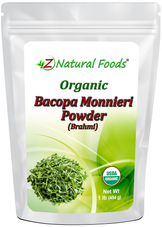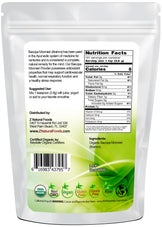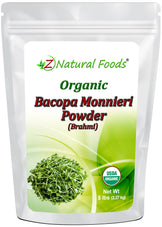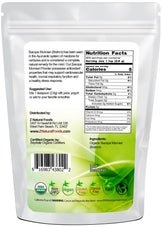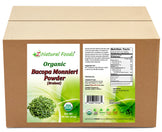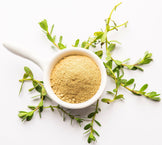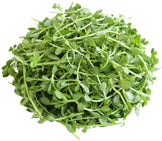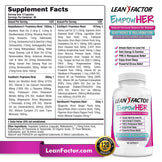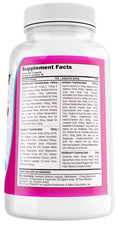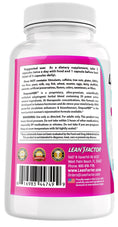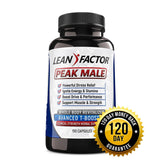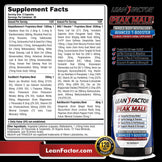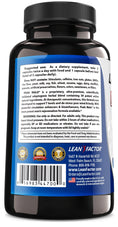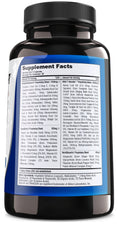Description
Description
Bacopa: The Great Ayurvedic Nootropic and Nerve Tonic
What is a Nootropic?
The term Nootropic was first defined by a Romanian psychologist by the name of Corneliu Giurgea.
Giurgea was also the first to synthesize one of the most well-known substances in this general category, Piracetam, in the year 1964. Because he is a leading authority, the criteria which define a nootropic was named after him. The Giurgea Nootropic Criteria states that in order for any substance to be considered a nootropic, it must do the following:
- Enhance learning and memory
- Enhance the resistance of learned behaviors/memories to conditions which tend to disrupt them
- Protect the brain against a broad spectrum of physical or chemical injuries
- Increase our ability to focus and pay attention
- Lack common side effects that are related to other psychotropic drugs
- Be non-toxic
Bacopa Monnieri has all these properties and then some….
The History of Bacopa
Bacopa, also known as Brahmi, belongs to the category of botanicals known worldwide as nerve tonics, bacopa also has the qualities of a nootropic and an adaptogen which demonstrates the broad potential action of this complex herb.
The primary purpose of a nerve tonic is to support and protect the brain and nervous system in conjunction with a healthy stress response, thereby, improving the overall quality of one’s life.
Bacopa is traditionally known as Ayurvedic medicine’s prized memory enhancer. Ayurvedic medicine classifies this botanical as a “Rasayana” herb (rasa means tissue or plasma and, Ayana means path).
Traditionally, bacopa has been used in Ayurvedic medicine to support a healthy aging process via strengthening one’s life, brain, and mind. Bacopa is also a superstar in another form of medicine known as Unani, this system of medicine originates from the Greeks based on the work of Hippocrates using bacopa to support and strengthen the brain and nervous system.
Bacopasides
Bacopasides are one of the many class of compounds found in bacopa.
This family of compounds is known as triterpenoid saponins which are produced by plants as a part of their self-defense mechanism. There are 11
- Bacopa Monnieri extracts and isolated bacosides have been extensively investigated for their neuropharmacological effect. (1)
- The triterpenoid saponins and their bacosides are said to be responsible for BM’s (Bacopa Monnieri) ability to enhance nerve impulse transmission. (1)
The research also states:
- Bacosides have shown an antioxidant and antistress activity (1)
- Based on animal study results, bacosides were shown to have antioxidant activity in the hippocampus, frontal cortex
and striatum (1) - Animal research has shown that the BM extracts modulate the expression of certain enzymes involved in generation and scavenging of reactive oxygen species in the brain (1)
Is Bacopa an Adaptogen?
According to a stress study using rats, Bacopa “has a potential to modulate the activities of HSP 70 (Heat shock protein 70 helps to protect the cells from stress), CYP 450 (Cytochrome P450 enzymes function is to metabolize potentially toxic compounds) and SOD (An antioxidant defense system) and thereby possibly allowing the brain to be prepared to act under adverse condition like stress.” (2) It is quite clear that bacopa has adaptogen-like qualities but, it is not considered a “true adaptogen” because it does not fulfill the criteria to be considered one. Bacopa is a wonderful addition (as a supportive herb) to any adaptogen or stress supportive formula.
More Neuroprotective Effects?
In this study, adult male rats were divided into 5 groups which 3 of them were treated using an extract high in
The findings of this study indicated that “Bacopaside possess a neuroprotective effect against injury caused by cerebral ischemia (death of brain tissue and stroke). This protective mechanism might be related to improving brain metabolism and antioxidant levels.” (3)
In another interesting study consisting of 27 males and 37 females who received either an extract of bacopa (300 or 600 milligrams) or a placebo once daily for 12 weeks.
The startling results suggested Bacopa can improve attention, cognition, and working memory (via the suppression of AChE which blocks the communication of neuron activity). (4) In simple terms, Bacopa helped to prevent AChE from blocking communication between neurons.
How to Use Bacopa for Best Results
As you have learned from other articles, using formulas (more than one herb) is by far the best way to get the most out of these powerful medicinals. Therefore, because bacopa is a general nerve tonic with adaptogenic qualities, a beautiful pairing would be to use it with an adaptogen like ashwagandha or
Let’s begin with looking at which adaptogen would be a good match. Ashwagandha is a “calming adaptogen” and has wonderful research on its ability to support a healthy emotional state via supporting a healthy stress response. If you are looking for more of an excitatory adaptogen then
Another way to get the most from taking bacopa is matching it with the proper nervine. Again, this comes down to how your stress manifests itself. If you manifest your stress via excitatory responses like twitching or convulsions, then skullcap is
Ayurvedic medicine and mother nature have once again hit the nail on the head. Bacopa has clearly stood the test of time through traditional use and modern research to prove its ability to support and nourish our brains in time of need.
About Michael Stuchiner
 Michael Stuchiner is an experienced Master Herbalist, the Head of Education for Z Natural Foods, a teacher
Michael Stuchiner is an experienced Master Herbalist, the Head of Education for Z Natural Foods, a teacher
As an “in-the-trenches” herbalist, Mike has done more than 85 speaking engagements, consulted with clients ranging from young to elderly, worked with athletes in virtually all sports and with clients who have “dis-ease” states of a wide variety. Mike also mentors student Master Herbalists and will continue to teach the next generation to grow a deeper wisdom of the human body through appropriate herbal remedies.
For Bulk inquiries and custom formulations click here: https://www.znaturalfoods.com/pages/bulk
References
1) Kashmira J. Gohil
2) Chowdhuri DK1, Parmar D, Kakkar P, Shukla R, Seth PK, Srimal RC. 2002. “Antistress effects of bacosides of Bacopa
3) Liu X1, Yue R, Zhang J, Shan L, Wang R, Zhang W. 2013. “Neuroprotective effects of
4) Carlo Calabrese, N.D., M.P.H.,1 William L. Gregory, Ph.D.,1 Michael Leo, Ph.D.,2 Dale Kraemer, Ph.D.,3 Kerry Bone, F.N.I.M.H., F.N.H.A.A.,4 and Barry Oken, M.D.5. 2008. “Effects of a Standardized Bacopa



